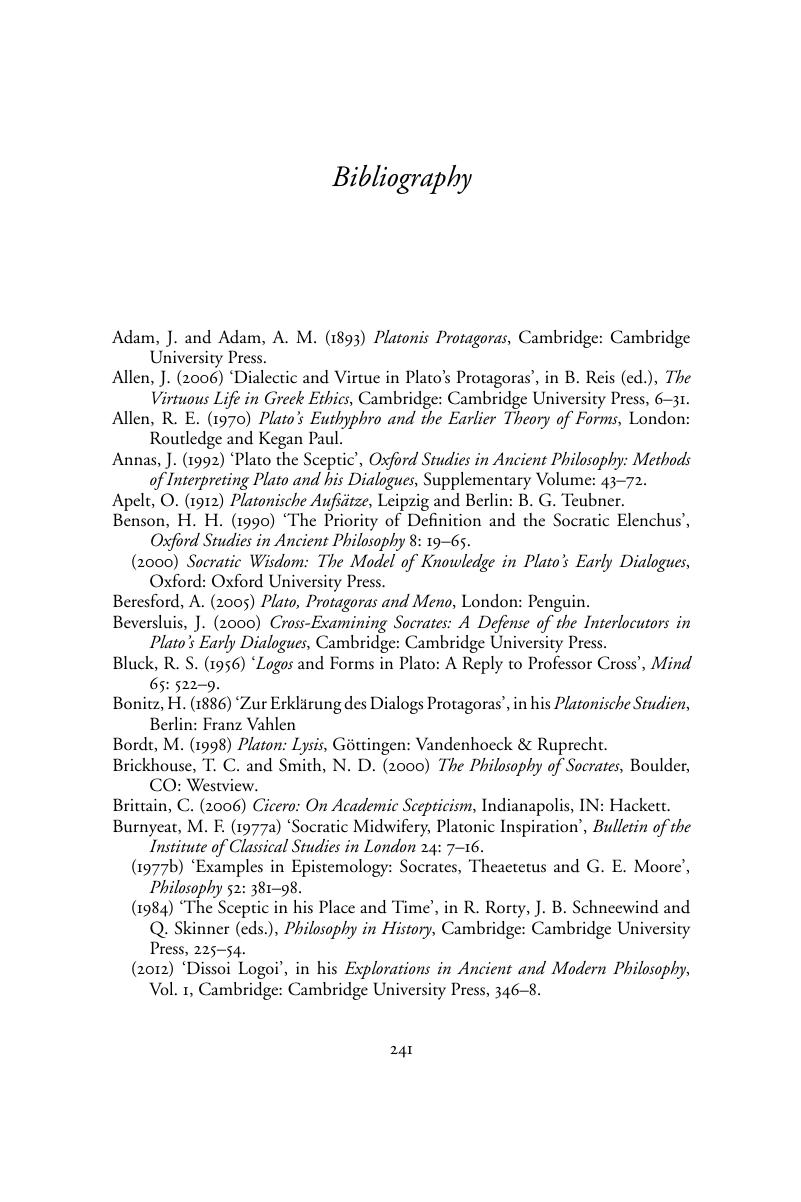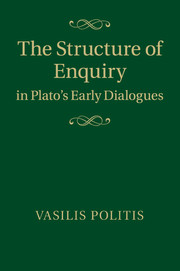Book contents
- The structure of enquiry in Plato's early dialogues
- The structure of enquiry in Plato's early dialogues
- Copyright page
- Dedication
- Contents
- Book part
- Introduction
- Part I The Issue of the Justification of Plato's Essentialism
- Part II The Role ofAporiaand the Root of Plato's Essentialism
- Bibliography
- General index
- Index of passages cited
- References
Bibliography
Published online by Cambridge University Press: 05 June 2015
- The structure of enquiry in Plato's early dialogues
- The structure of enquiry in Plato's early dialogues
- Copyright page
- Dedication
- Contents
- Book part
- Introduction
- Part I The Issue of the Justification of Plato's Essentialism
- Part II The Role ofAporiaand the Root of Plato's Essentialism
- Bibliography
- General index
- Index of passages cited
- References
Summary

- Type
- Chapter
- Information
- The Structure of Enquiry in Plato's Early Dialogues , pp. 241 - 247Publisher: Cambridge University PressPrint publication year: 2015



